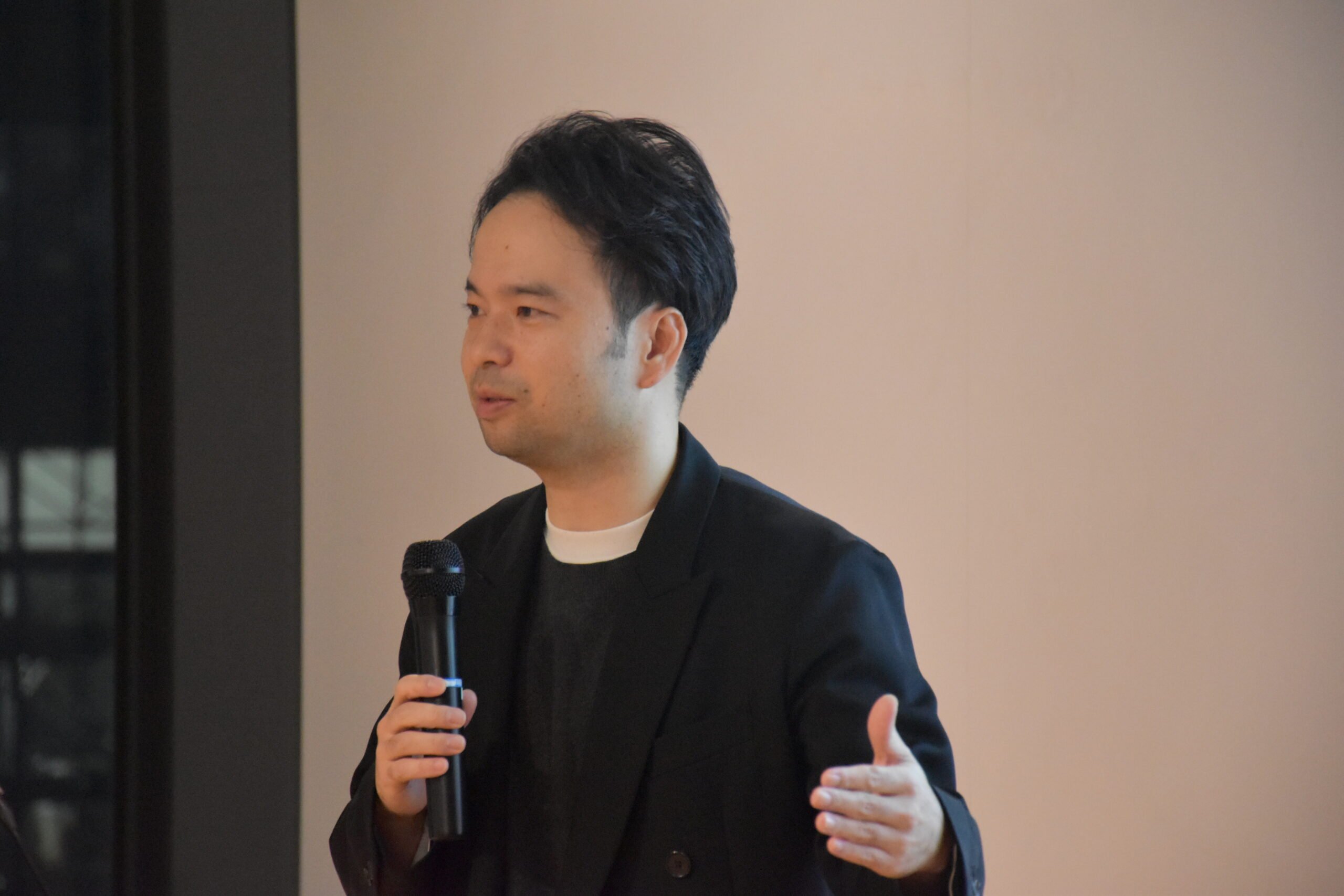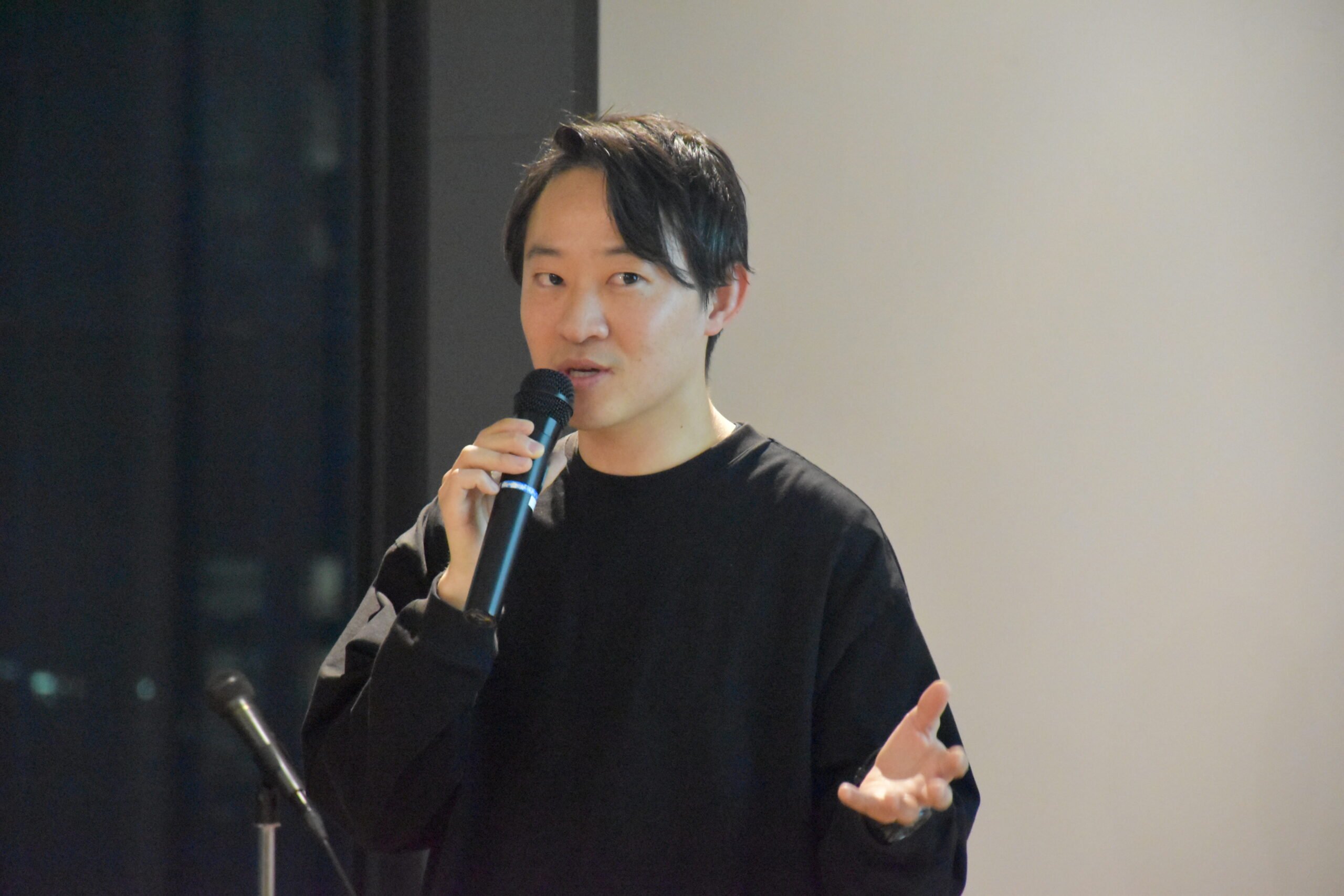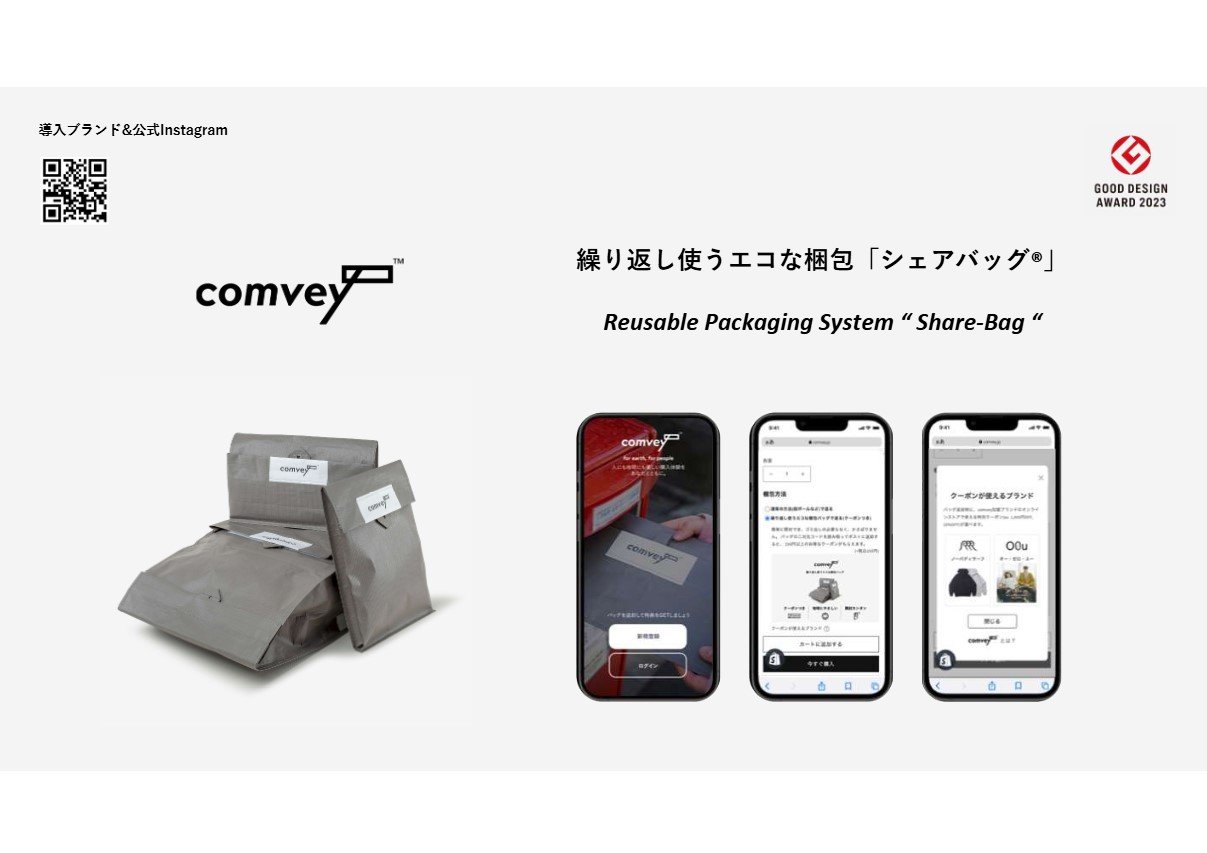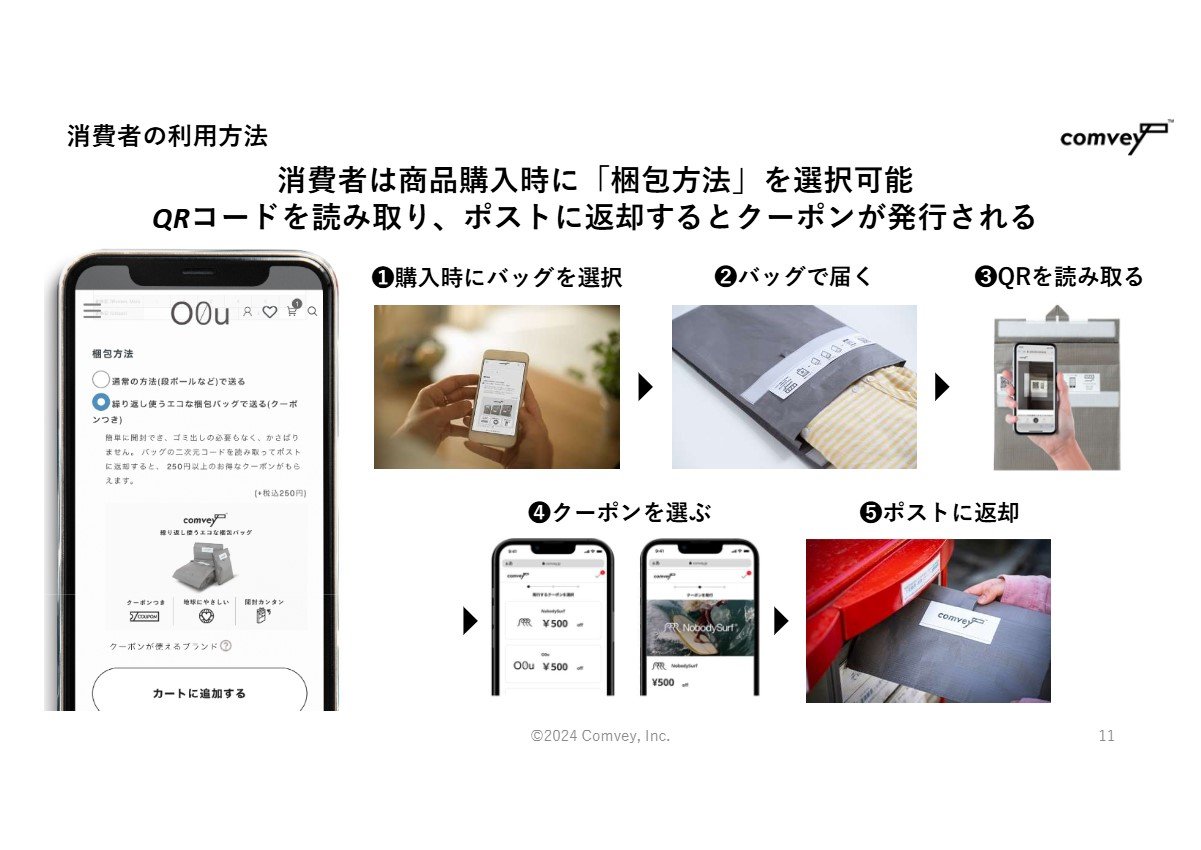![[CIRCULAR STARTUP TOKYO] Event Report | 3rd Circular Business Design Lecture: “Circular Economy and Service Design”](https://harch.jp/wp-content/uploads/2025/04/circularstartuptokyo-3rd-lecture-report-202504-01-825x340.jpg)
[CIRCULAR STARTUP TOKYO] Event Report | 3rd Circular Business Design Lecture: “Circular Economy and Service Design”
- On Dec 20, 2024
- Circular Business Design, Circular Economy, CIRCULAR STARTUP TOKYO, Service Design
As part of the second phase of “CIRCULAR STARTUP TOKYO”—a startup support program specializing in the circular economy, conducted in collaboration with the Tokyo Metropolitan Government—Harch Inc. held the 3rd lecture of the Circular Business Design series, titled “Circular Economy and System Design.”
*This article is a republished report from CIRCULAR STARTUP TOKYO titled “[Event report] 3rd Circular Business Design Lecture: Circular Economy and Service Design”.
Report on the 3rd Circular Business Design Lecture: “Circular Economy and Service Design”
CIRCULAR STARTUP TOKYO is an incubation program dedicated to supporting startups in the circular economy sector. Over a five-month period, participants receive mentoring from entrepreneurs and experts active in the circular economy, attend lectures on circular business, and have networking opportunities with domestic and international circular economy promotion organizations, major corporations, financial institutions, investors, local governments, and specialists. The program aims to assist participants in building and growing new business models that contribute to the realization of a circular economy, ultimately aiming to secure funding and generate social impact.
On December 6, 2024, the third session of the Circular Business Design Lecture Series and the second session of Circular Economy Startup Practice were held. The session focused on the theme: Circular Economy and Service Design.
The guest speakers were Koji Kimita, Project Associate Professor in the Department of Technology Management for Innovation at the University of Tokyo’s Graduate School of Engineering, and Shingo Kajita, CEO of Comvey Inc., the provider of the reusable packaging solution ShareBag®.
In the first half of the session, Professor Kimita delivered a lecture on Circular Economy and Service Design, highlighting perspectives that integrate circular economy principles with practical business strategies. His research evaluates the environmental performance of PaaS (Product as a Service) models—such as sharing or subscription-based services that emphasize use over ownership.
In the second half, Comvey CEO Kajita shared the story behind the launch of his business, founded on the concept of “building beautiful logistics.” He also introduced the development of ShareBag®, a reusable packaging solution, from both environmental and practical standpoints.
This article highlights selected content from the lecture.
*About the Circular Business Design Lecture Series
The Circular Business Design Lecture consists of five sessions. The first session provides a broad perspective on system design before progressively narrowing its focus to business design, service design, and product design in later sessions, delving deeper into the process of building circular businesses.
High-Quality PaaS Models to Balance Economic and Environmental Goals
In the circular economy, PaaS business models are gaining attention. In such models, companies retain ownership of their products and offer them as services rather than selling them outright.
PaaS is considered an effective approach to achieving resource decoupling—separating economic growth from resource consumption. A notable example is the Swedish home appliance manufacturer Electrolux.
Kimita explained:
“In the traditional product sales model, durable products mean fewer replacements, which can reduce profits. To address this, Electrolux adopted a ‘pay per wash’ model, where users pay for each use of a washing machine. Electrolux bears all costs related to use, maintenance, and disposal. In this model, manufacturing longer-lasting machines directly benefits the company. As material costs rise and regulations require recycled materials, the advantages of shifting to a PaaS model grow.”
He also introduced other PaaS examples:
- Hilti: Monthly subscription for construction tools
- airCloset: Fashion subscription service
- Rolls-Royce: Long-term maintenance services for aircraft engines
- Michelin: Tire subscriptions based on truck mileage
Kimita noted that PaaS it also creates opportunities for delivering new consumer value.
“With airCloset, for example, customers receive curated outfits from professional stylists. Even people without time to shop can enjoy fashion. Meanwhile, services like Hilti, Rolls-Royce, and Michelin help users reduce downtime and maintenance costs.”

Koji Kimita, Project Associate Professor, Department of Technology Management for Innovation, Graduate School of Engineering, The University of Tokyo
Because PaaS enhances product efficiency and reduces waste, its environmental impact is often lower than individual ownership. However, Kimita cautioned that improper implementation may lead to higher environmental burden, highlighting the need to improve service quality.
Research on service quality and environmental impact
Kimita shared research findings that explored how service quality affects environmental outcomes. The study involved consumers using airCloset for about three months, tracking how often they wore the rented items compared to their owned clothing.
Consumers were categorized into four types:
- Stand-out: Seek unique styles
- Bargain: Shop sales
- Influencer: Follow fashion trends
- Avoid: Buy only when needed
Four clothing types were studied: skirts, pants, tops, and dresses.
The results showed that depending on the combination of clothing type and consumer category, PaaS services could either increase or decrease environmental burden. However, when the study focused on items users truly liked, wear frequency increased and environmental impact decreased.
(Note: These findings do not represent airCloset’s overall business impact.)
This led to the conclusion that delivering clothing based on user preferences and feedback can lower environmental load. Improving service quality directly contributes to sustainability.
Moreover, participants in the study reported behavioral changes:
- “I now understand my fashion preferences and don’t insist on new items.”
- “I’ve become more selective when shopping.”
These responses suggest that well-designed circular services can encourage more environmentally conscious consumer behavior.
Circular Economy in Practice – Creating Beautiful Logistics | Comvey Inc.
The second speaker, representing practical efforts in circular economy business, was Mr. Shingo Kajita, CEO of Comvey Inc. Founded in June 2022, Comvey operates under the vision of “creating beautiful logistics.” The company aims to build sustainable logistics that are friendly to both people and the planet, based on collaboration between sellers, buyers, and couriers. The name ‘Comvey’ carries a dual meaning—not only conveying goods, but also conveying emotions and intentions.”
The motivation behind the company’s foundation stemmed from the limitations of the conventional parcel delivery model. Kajita explained, “With the rise of e-commerce, even a single toothbrush or battery can now be delivered to your door. In Japan, this has led to 5 billion parcel shipments annually, a figure projected to double to 10 billion within the next decade. As a result, we’re now facing issues such as packaging waste, a surge in product returns, and a shortage of delivery drivers.”
Among these challenges, Comvey first set out to tackle the issue of packaging waste—particularly the widespread use of cardboard. While about 90% of cardboard in Japan is recycled, Kajita pointed out the environmental cost involved in that process.
“Recycling may seem environmentally friendly, but in reality, it also generates CO₂ and consumes significant amounts of water and electricity. We must shift our attention to these hidden costs,” he emphasized.

Shingo Kajita, CEO, Comvey Inc.
From a consumer perspective, cardboard packaging can also be a source of stress due to the need for opening, breaking down, storing, and disposing of the boxes. According to Kajita, surveys show that 90% of consumers are dissatisfied with current packaging materials.
To address this, Comvey developed an eco-friendly, reusable packaging solution called the Share Bag®, which can be reused over 100 times. The usage is simple: by installing Comvey’s system on an e-commerce site, a packaging selection option is automatically displayed under each product image. Consumers can choose between traditional cardboard or Comvey’s bag, and if the latter is selected, the product will be delivered using a Share Bag®. By scanning the unique QR code inside the bag with a smartphone, users are directed to their Comvey My Page and receive a coupon for their next order.

The bags are compatible with major shipping companies, including Yamato Transport, Sagawa Express, and Japan Post, and are available in three sizes: Small, Medium, and Large (with Medium and Large being adjustable in size). This reduces storage needs for packaging materials on the e-commerce seller side as well.
All Share Bags fold down to A4 size, making them easy to carry in a handbag or backpack. Since the bags were co-developed with Japan Post, they can be returned via any postal mailbox across the country. Return instructions are sewn onto the back of each bag, eliminating the need for postage—users simply drop them into a mailbox.
“Japan has one of the highest numbers of mailboxes in the world—more than the number of convenience stores,” Kajita noted, highlighting the convenience. Since the service launched in May 2023, the return rate for Share Bags has remained close to 100%, he added.
Kajita continued, “These bags can be reused over 100 times, and after reaching the end of their life, more than 95% of their material is horizontally recycled into materials for the same use. Our approach is to prioritize reuse over recycling whenever possible.”

Nearly 90% of consumers who used Comvey’s service reported that it helped them avoid the hassle of waste disposal. The most appreciated benefit was relief from the stress of dealing with cardboard. Other feedback included: “I felt I could contribute to reducing environmental impact (83%)” and “I developed a positive impression of brands using Comvey (70.2%).”
Kajita also pointed out a challenge in promoting sustainability: emphasizing only the environmental benefit of a product often fails to attract widespread interest, making it difficult to scale the service. “Our goal was to first deliver convenience and ease of use—then introduce the environmental benefits as added value. We have considered this balance from the initial design stage,” he said.
Having worked for about six years in logistics at ITOCHU Corporation, Kajita said he realized logistics is not merely about moving goods—it is a value-added service that connects people and conveys feelings. With Comvey, consumers themselves choose how their items are packaged. Kajita noted that participating companies have praised the service for enabling a sustainable future shared by both sellers and buyers.
Kajita closed his talk with the following message:
“While logistics is becoming more automated and convenient, the opportunities for emotional connection between people are decreasing. What makes us human is our ability to connect heart to heart. It would be a real loss if that disappeared. My mission is to increase moments of genuine connection through logistics. I hope to help balance the power between sellers, buyers, and couriers in a more fair and equitable way.”
Conclusion
This lecture underscored the effectiveness of the PaaS model and the need to balance environmental impact with user convenience in service design. It became clear that designing value from a user-centric perspective and utilizing data are directly linked to both reducing environmental burden and achieving business growth.
The next session will be the fourth Circular Business Design Lecture. It will focus on circular economy and product design, as participants continue preparing for business expansion and the upcoming Demo Day. We look forward to seeing how each participant further develops their ideas.
[Related Page] [Event report] 3rd Circular Business Design Lecture: “Circular Economy and Service Design”
[Related Site] CIRCULAR STARTUP TOKYO


![[Circular Yokohama] Received the second Kanagawa Decarbonization Award](https://harch.jp/wp-content/uploads/2026/02/datsutansotaisho_202602-300x200.jpg)




